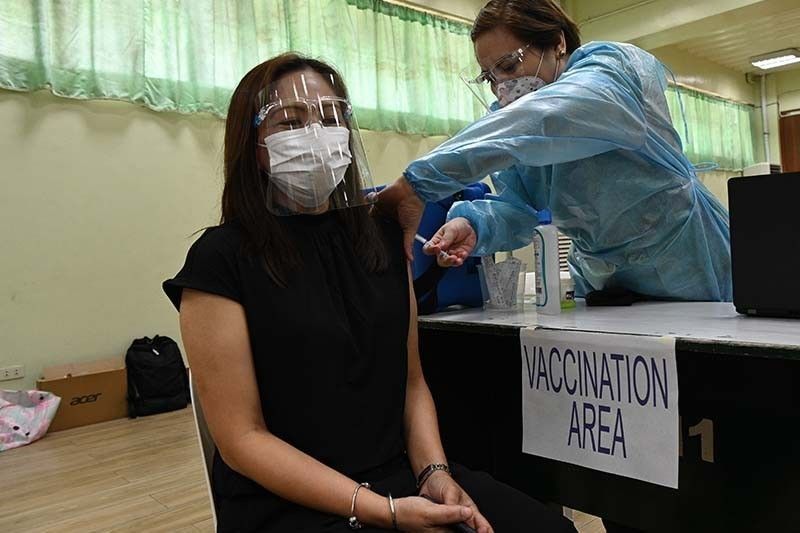LGUs to follow priority vaccination list, retain tripartite talks — ULAP president

MANILA, Philippines — The head of an organization of local governments sought to allay concerns by medical professionals that proposed measures allowing cities and provinces to buy their own COVID-19 vaccines could result in health workers and vulnerable groups to be left out in inoculation plans.
Bills in both chambers of Congress to authorize local government units to buy vaccines directly and speed up implementation of a vaccination program against the novel coronavirus.
Last week, a House version hurdled the appropriations committee, putting it closer to passage.
The development alarmed the Healthcare Professionals Alliance Against COVID-19, who warned that this could mean that LGUs "with money, influence and power would be scrambling to get the vaccines first."
They warned that "this can put behind our frontliners, senior citizens and others vulnerable who are truly in need of it with a high risk to their lives."
But speaking to social media portal Now You Know's "ViewPoint" on Saturday evening, Quirino Gov. Dakila Cua said local governments will not go their own way and that the administration's priority list would still be followed at the local level.
"The last thing we want is for only the rich LGUs can buy vaccines and that poor ones won't be able to," the head of the Union of Local Authorities of the Philippines said partly in Filipino.
"We'll follow all the national government's criteria," he also said.
LIST: Priority population groups for COVID-19 vaccination
Health workers are at the top of government's priority to receive the jabs, which officials said could happen sometime this month albeit delays in delivery. Senior citizens, those with preexisting conditions, as well as government employees and state forces are also part of the list.
Under the proposed measures, LGUs would be allowed to engage in talks directly with manufacturers and make advanced payments of 50%, but only to those that have secured emergency use approval from local regulators, which to date, would mean Pfizer and AstraZeneca.
Such moves came as local chief executives enter into purchase with drugmakers amid criticism on the administration for supposedly being late to entering talks, especially with President Rodrigo Duterte only allowing advanced payments by November 2020.
Nearly 30 cities and provinces deals have so far announced agreements or funding for buying the jabs, after being allowed through a tripartite agreement with the national government and vaccine manufacturers.
Cua cited the country's restrictive procurement law in backing a proposal by Senate Majority Leader Juan Miguel Zubiri for direct negotiations, saying LGUs only want to help and are only asking for flexibility to better respond to vaccination efforts.
He said too that they are ready to communicate to the Senate majority leader to amend the bill and keep the tripartite arrangement.
"That's really to give them assurance that LGUs will not go solo," Cua said. "That's not the intent of the bill and if we need to remove..we already expressed it to Sen. Zubiri [that] we're willing to remove that word 'directly' because it creates a lot of confusion."
Doctors Antonio and Leonila Dans of the HPAAC, also guests on "ViewPoint" warned that the legislation could "create more problems with the law than we were trying to solve."
"When you review bills, you need to look not just at its intent but [also] at its unintended consequences," said Antonio. "An unintended effect of direct procurement is loss of health technology expertise in deciding which vaccines to procure."
Both have been in discussions with Zubiri and Cua and were told that the phrase in question would be removed through an amendment. Still, Leonila said it must be reconciled with the version in the House.
"We have to make sure they agree on this common statement, that they will remove the direct purchase with the pharmaceutical company and involve the central government," she said.
The two stressed the crucial role that local governments will play in the vaccination rollout, which they said would be half of the entire immunization program.
This will include hiring and training people for the vaccination as well as ensuring accuracy in LGUs' enrollment list and putting it in a databse. "Since it's an emergency situation, they have to be involved even from the start. Maybe not in the purchase of the vaccine but in preparation for the vaccination [that] will take time and effort from the LGU." — Christian Deiparine
- Latest
- Trending






























